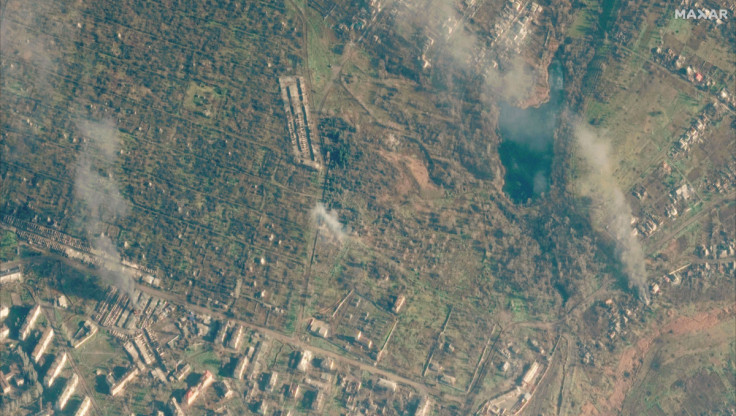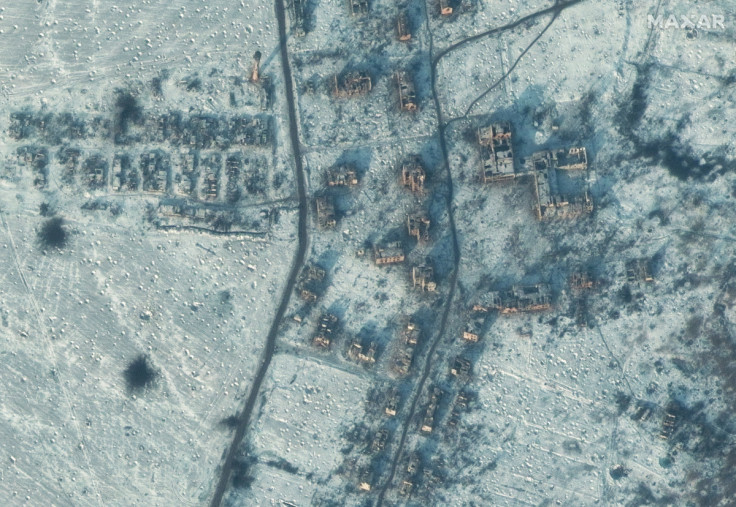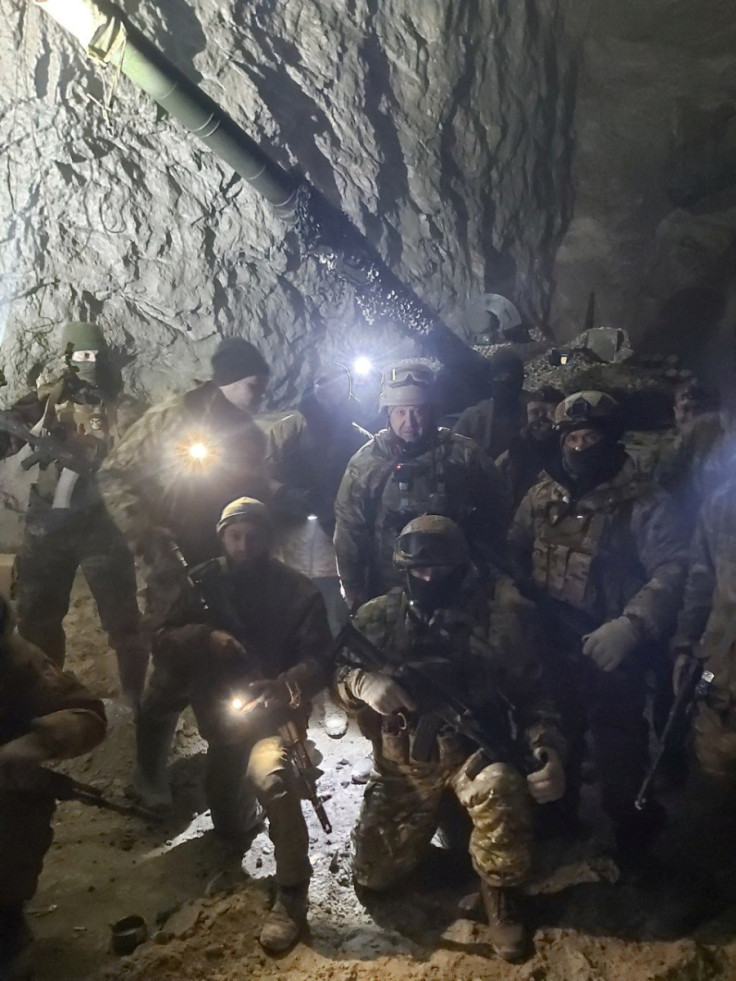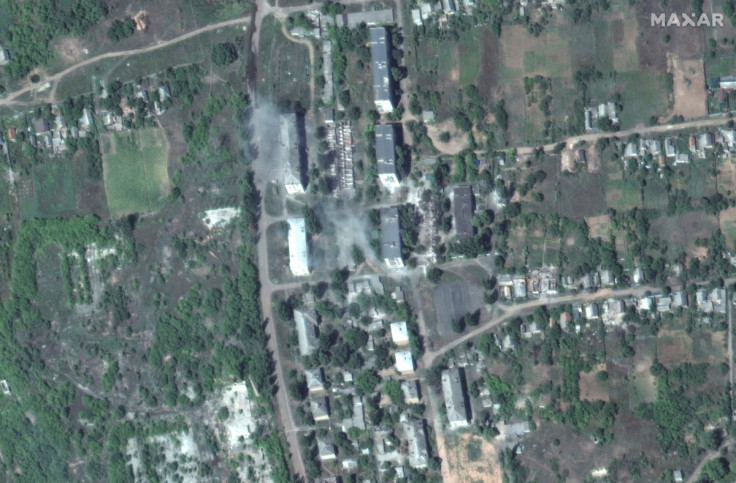Ukraine says troops hold out in corpse-strewn battlefield of Soledar
Ukraine said on Thursday its troops were holding out despite heavy fighting on a battlefield littered with bodies in a salt mining town in eastern Ukraine, where Russian mercenaries have claimed Moscow's first significant gain in half a year.

Ukraine said on Thursday its troops were holding out despite heavy fighting on a battlefield littered with bodies in a salt mining town in eastern Ukraine, where Russian mercenaries have claimed Moscow's first significant gain in half a year.
The ultra-nationalist contract militia Wagner, run by an ally of President Vladimir Putin outside the main chain of military command, claims to have taken Soledar after intense fighting that it said had left the town strewn with Ukrainian dead. But Moscow has held off officially proclaiming victory.
"At the moment, there are still some small pockets of resistance in Soledar," Andrei Bayevsky, a Russian-installed local politician, said in an online broadcast.
Ukraine has acknowledged Russian advances but Deputy Defence Minister Hanna Malyar told a briefing on Thursday that fighting was still fierce.
The Russians were "moving over their own corpses", she said. Reuters was unable to independently verify the situation.
Malyar said Russia had increased the number of units in Ukraine to 280 from 250 in the past week as it seeks to regain the initiative.
Kremlin-watchers were poring over Russia's latest switch of battlefield leadership, a day after Valery Gerasimov, chief of the military's general staff, was unexpectedly given direct command of the invasion.
The previous commander of three months' standing, Army General Sergei Surovikin, was effectively demoted to become one of Gerasimov's three deputies.
Moscow explained the decision - at least the third abrupt change of top commander in the 11-month conflict - as a response to the campaign's growing importance.
Russian and Western commentators alike saw attempts to shift blame for setbacks in which Russia has lost around 40% of the territory it had seized since February.
FIXER OR FALL-GUY?
Gerasimov had become a target of abuse from nationalist bloggers, who have flourished even as the Kremlin has shut all independent media and jailed critics of the war.
"The move is likely to be greeted with extreme displeasure by much of the Russian ultra-nationalist and military blogger community, who have increasingly blamed Gerasimov for the poor execution of the war," Britain's Ministry of Defence said.
One prominent Russian military blogger who posts on the Telegram messaging app under the name of Rybar said Surovikin was being made a scapegoat for military debacles.
However, Mick Ryan, a retired Australian major general, suggested in a tweet that Putin and Defence Minister Sergei Shoigu had "set up Gerasimov as the fall guy for all of Russia's failures".
Semyon Pegov, another Russian military blogger, noted that "now the General Staff is directly and uncompromisingly responsible for absolutely everything".
Ukraine's defence ministry offered mockery. "Every Russian general must receive at least one opportunity to fail in Ukraine," it tweeted. "Some may be lucky enough to fail twice."
Soledar would be Moscow's biggest gain since a series of humiliating retreats in the second half of 2022 - but at immense cost, with huge losses on both sides.
It had barely 10,000 inhabitants before the war. Russia has failed in repeated attempts to capture the far more important nearby city of Bakhmut, ten times as large.
Donetsk governor Pavlo Kyrylenko told Ukrainian state TV that 559 civilians remained in Soledar, including 15 children, and could not be evacuated.
Across Ukraine, the front lines have barely budged since Russia's last big retreat in the south two months ago. Kyiv hopes heavy armour from Western allies will allow it to resume advances.
HOPING FOR TANKS
With the West upping the ante in a way that seemed unthinkable a few months ago, the United States, Germany and France last week pledged armoured fighting vehicles - and the focus has now shifted to main battle tanks.
Polish President Andrzej Duda, who was cheered in the Ukrainian city of Lviv on Wednesday, promised a company of 14 German-made Leopard battle tanks, part of what he called an international coalition.
Despite briefly seeming blindsided, Germany, whose permission would be required, on Thursday appeared to yield.
"Germany should not stand in the way of other countries taking decisions to support Ukraine, independent of which decisions Germany takes," Vice Chancellor Robert Habeck said.
Britain has also said it is considering sending tanks.
Putin launched the invasion on Feb. 24, saying Kyiv's ties with the West threatened Russia's security. Ukraine and its allies call it an unprovoked war to seize territory.
In Kherson city, recaptured by Ukrainian forces in November, prosecutors said they were investigating at least 10 sites where Russian occupiers had tortured hundreds of Ukrainians.
Oksana Minenko, a 44-year-old accountant whose husband died defending the city on the war's first day, told Reuters she had repeatedly been interrogated during occupation. Russians submerged her hands in boiling water, pulled out her fingernails and beat her in the face with rifle butts, she said last month.
"One pain grew into another," she recounted, with scarring visible around her eyes from what she said was an operation to repair the damage. "I was a living corpse."
Her account could not be independently verified. Moscow denies abusing civilians in occupied areas.




Copyright Thomson Reuters. All rights reserved.





















